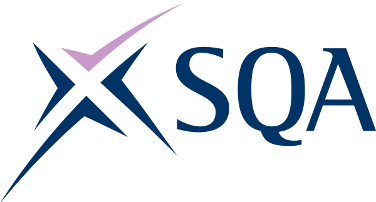Mathematics at Holy Rood RC High School
Mathematics engages pupils of all interests and abilities. It uses a universal language of numbers and symbols, which allows us to communicate ideas in a concise, unambiguous and rigorous way.
All mathematics courses develop important mathematical techniques which are critical to successful progression from the BGE through to Higher and Advanced Higher.
The skills, knowledge and understanding developed in mathematics also support learning in other faculties such as DET, computing, food, textile, technology, science and social studies.
All pupils study mathematics and numeracy in S1 to S3 following the BGE, then pupils will sit a National qualification at level 3, 4 or 5. Pupils can then choose to continue their mathematical studies in S5 and S6 by studying National 5, Higher or Advanced Higher mathematics.
Alternative pathways are the study of National 5 applications of mathematics, or personal finance at level 4 or 5.
Staff
Mrs L Kelly – Curriculum Leader
Mr M Lynch
Mr D Simpson
Mr S Madiki
Mrs S Smith
Ms C Navarro
Miss C McWhirter
Subjects & Levels Offered
National 4 / 5
Mathematics

National courses reflect the Curriculum for Excellence values, purposes and principles. They offer flexibility, provide more time for learning, more focus on skills and applying learning, and scope for personalisation and choice.
Using mathematics enables us to model real-lfe situations and make connections and informed predictions. It equips us with the skills we need to interpret and analyse information, simplify and solve problems, assess risk and make informed decisions.
Higher
Mathematics

National courses reflect the Curriculum for Excellence values, purposes and principles. They offer flexibility, provide more time for learning, more focus on skills and applying learning, and scope for personalisation and choice.
The purpose of the higher course is to develop, deepen and extend the mathematical skills necessary to apply operational skills and develop mathematical ideas through symbolic representation and diagrams.
Advanced Higher Mathematics

National courses reflect the Curriculum for Excellence values, purposes and principles. They offer flexibility, provide more time for learning, more focus on skills and applying learning, and scope for personalisation and choice.
The purpose of the advanced higher course is to acquire and apply operational skills necessary for exploring complex mathematical ideas. They select and apply mathematical techniques and develop their understanding of the interdependence in mathematics.
National 5 Applications of Mathematics

National courses reflect the Curriculum for Excellence values, purposes and principles. They offer flexibility, provide more time for learning, more focus on skills and applying learning, and scope for personalisation and choice.
The National 5 Applications of mathematics course explores the applications of methematical techniques and skills in everyday situations, including financial matters, statistics and measurement. This course challenges pupils to think through real-life situations involving mathematics and to form a plan of action based on logic.
Personal
Finance

National courses reflect the Curriculum for Excellence values, purposes and principles. They offer flexibility, provide more time for learning, more focus on skills and applying learning, and scope for personalisation and choice.
The Personal Finance Award will develop knowledge and skills to cope confidently and effectively with the types of financial matters individuals are likely to encounter. From student loans, to pensions, the awards will prepare pupils for financial decision making and managing personal finances throughout their lives.
National 3 Lifeskills Mathematics

National courses reflect the Curriculum for Excellence values, purposes and principles. They offer flexibility, provide more time for learning, more focus on skills and applying learning, and scope for personalisation and choice.
The NAT 3 Lifeskills Mathematics course is designed to meet the needs of understanding numerical information handling skills to solve simple, real-life problems involving number, money, time and measurement. Pupils will use their knowledge and understanding of processes, information handling and improved decicion making.
Career Opportunities
All jobs require numeracy skills at some level. Many jobs will require a National 5 level of mathematics such as customer service roles or clerical work.
Careers with specific mathematical elements include; Actuaries, accountancy / finance roles, statisticians, engineering and construction, research and medicine roles.
